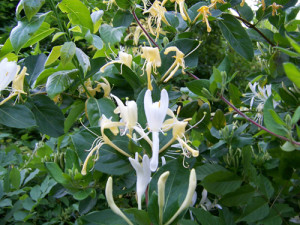Researchers have found that when honey bees are faced with a fungal infection they use propolis to fight the fungus. What is propolis? Propolis is a mixture of plant resign and wax that honey bees may use as lining inside the hive. However, while this substance may not be appreciated by beekeepers because it can make it more difficult to open the hive, researchers have found that propolis has antibacterial and antifungal properties.
Effectively, when honey bees are faced with a fungal infection they may significantly increase the amount of propolis brought to the hive. Effectively, Jennifer Welsh of LiveScience writes in an article the following:
The researchers found that when facing a fungal threat the bees brought in 45 percent more of the waxy creation to line their hives, and physically removed fungally-infected larvae from their area.
Nonetheless, the fact that bees brought in more propolis is not the main element proving that this natural product had antifungal properties. In fact, it was remarked that the infection was reduced after the use of propolis. Similarly, Lans in an article published on the site IndiaTimes.com mentioned that:
Researchers know propolis is an effective antifungal agent because they lined some hives with a propolis extract and found that the extract significantly reduced the rate of infection.
Furthermore, honey bees appeared to be able to distinguish sometimes a fungus that was harmful to another one that wasn’t. To illustrate this point, it can be read in an article published on the HuffingtonPots.com by Jennifer Welsh that:
The bees were even aware of which fungi were harmful and which weren’t. When infected with fungus that didn’t cause disease, the bees didn’t ramp up their propolis deposition in response.
This being, the propolis seemed to be limited in defending the colony against pathogenic bacteria as noted on a domain-b.com webpage:
Honey bee colonies infected with pathogenic bacteria did not bring in significantly more propolis – despite the fact that the propolis also has antibacterial properties. ”There was a slight increase, but it was not statistically significant,” Simone-Finstrom says.
Thus here is more information on how interesting honeybees are. It appears that they have very good reflexes against fungal infection that could help us better understand the world more.
To get 10 Free email lessons about backyard beekeeping, I invite you to click here and subscribe at: .

